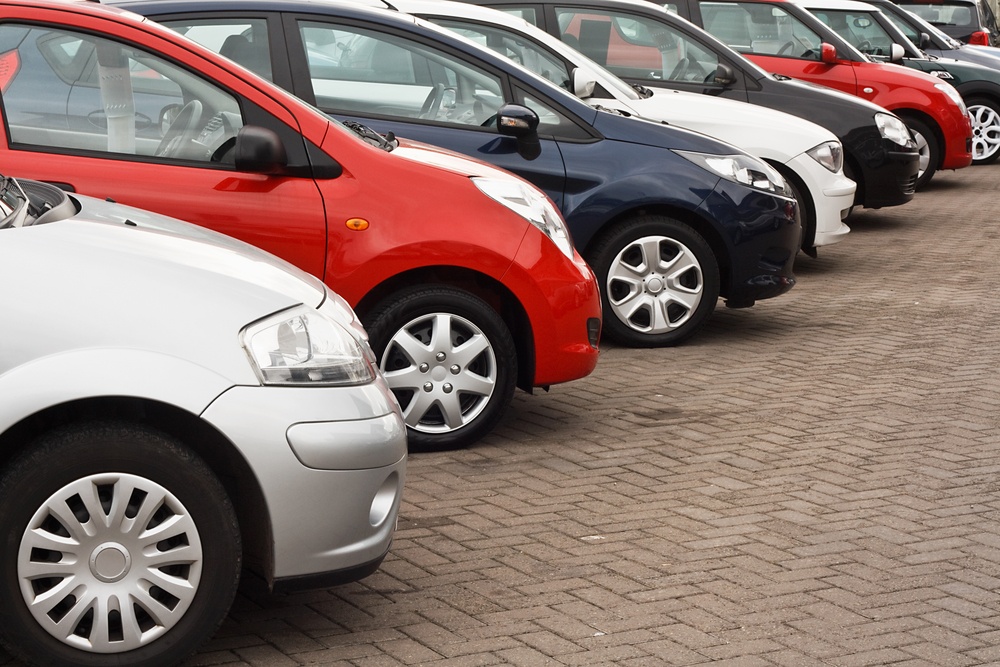 A certain percentage of people buying a new or new-to-them car expect to trade in their current vehicle to offset the cost. After all, there may be plenty of miles left on it, they just want or need a new car because their family has grown or someone has a new job requiring a different type of transportation. There are many reasons for trading in an automobile.
A certain percentage of people buying a new or new-to-them car expect to trade in their current vehicle to offset the cost. After all, there may be plenty of miles left on it, they just want or need a new car because their family has grown or someone has a new job requiring a different type of transportation. There are many reasons for trading in an automobile.
Those who are trading in expect to get as much as possible while the dealership or buyer wants to pay as little as possible. How can you increase your car’s resale or trade-in value?
First, let’s look at how dealerships determine trade-in value.
Determination of Trade-In Value
The main reason for trading in a vehicle when purchasing another is that the dealership makes it convenient. You don’t have to hassle with putting your car up for sale in some parking lot or dealing with those who want to kick its tires. However, it should be noted that it’s unlikely you will receive the same amount for a trade-in than if you sell it yourself.
Dealerships look at many elements when making the decision on trade-in value.
- The make, model, and popularity of a particular vehicle influences its value to the dealer. The dealer knows it can offer such a car at a higher price than it might a less popular car. Brands like Toyota and Honda, as well as popular items like sports cars usually fetch a better price, and so you may get slightly more in trade-in.
- The age and mileage impact the trade-in value as well. Older cars and those with high mileage will not be worth as much to the dealer. Newer cars, on the other hand, are popular with the used-car buyer who is looking for new technology and a nice car that doesn’t depreciate as much when it’s driven off the lot.
- The condition of a car matters a great deal. If it's dirty, the paint is chipped, the hood is dinged, or the upholstery was worn and torn, the dealer is unlikely to be interested because it will be hard to resell such a car.
That last point is the one you can influence the most as the soon-to-be-previous owner of your automobile.
10 Tips for Increasing the Trade-In or Resale Value of Your Car
Tip #1 - Think like a buyer.
Think about it. If you were buying that car, would you appreciate the rusted scrape on the side or the grape juice a kid spilled on the beige fabric seats two years ago?
People don't buy cars intending to repair them, except in cases of a 1964 1/2 Ford Mustang with the original engine but needing new paint and upholstery. If you have replaced a critical system or component, go ahead and mention it. Knowing the air conditioner is brand new on an 8-year-old car would impress anybody.
Tip #2 - Maintain and repair.
Regular maintenance performed according to the manufacturer’s recommendations and repairs completed as soon as something breaks will make your car very cherry and crank up the value for little effort.
Tip #3 - Get new tires.
A set of four decent tires is expensive. Putting new tires on a car is like getting yourself a brand new pair of white tennis shoes. Somehow, new white running shoes make everything you are wearing look new. Tires do the same for a car. Plus, if the tires look worn, nobody will want to look any further.
Tip #4 - Keep it pretty.
Like “curb appeal” for homes, keeping your car in prime condition and with shiny paint and chrome, clean rugs, and upholstery without cracks makes people want to whistle. A beautiful exterior will attract the prime buyer. It will also bump up the trade in value.
Tip #5 - Keep ALL the documentation.
Maintenance records, receipts from repair work and parts, the original owner’s manual, anything you can keep to prove how well your car has been treated and how great it runs will make your car worth more than a similar car without the records. Even keep the window sticker.
Also, put the purchase receipt, title, and finance contract somewhere safe. Not in the car.
Tip #6 - Check your VIN report.
The Vehicle Identification Number report shows everything that has happened to the car since it landed on the dock of the dealer. It shows changes in ownership, recalls, accidents, servicing, and more.
Tip #7 - Be smart about the extras.
Adding extra equipment to a car may not increase its value unless you are offering the exact feature someone finds essential. Unfortunately, trying to predict what an aftermarket component will do for the value of your car is just about impossible. If you want a rear spoiler, go ahead and get one. Just don't be surprised if it doesn’t do anything for the resale or trade-in value.
Tip #8 - Keep the mileage reasonable.
If you shop on mileage, so does everyone else. If you plan to trade in or sell any car you buy, keep an eye on the miles it's driven. If it gets near 100,000, it might be time to replace it. Not that you won’t get another 50,000 to 100,000 miles out of it, but people are leery about cars with over 100K on the odometer.
Tip #9 - Drive carefully and treat your vehicle with R-E-S-P-E-C-T! (Sing it, Aretha! May you Rest in Peace.)
This should go without saying, but be careful when you are driving. Practice defensive driving. Don't take your vehicle off-road or drive it by limbs that scratch it every day. Don't suddenly downshift into second gear when you're going 75 mph (yes, someone has done that).
Remember that the systems of your car are like your internal organs. You want to keep them going as long as possible, so take care of them. Be gentle and reduce stress.
Tip #10 - Do Your research and shop around to get the best trade-in.
Before you start going to the dealerships or putting a For Sale sign in the windshield, find out how much your car is worth. And be honest with yourself about the condition of the car.
Edmunds.com and KBB.com (Kelley Blue Book online) are excellent resources for calculating how much cars like yours have sold in your location. Everything from the mileage to the color of the vehicle is considered. Go on Craigslist to see if someone else is selling a similar car where you live. How much are they asking? Now get quotes from more than one dealer to see who offers the highest trade-in price.
A Final Note
Buying another car is a significant expense. To maximize the amount you get for your current vehicle, sell it yourself. You will get more for it from a private buyer. However, if you are uncomfortable with that idea or lack time, do everything you can to get the highest trade-in possible. See? It pays to keep your things nice.
By the way, Shabana Motors buys cars. Just bring your vehicle, title, lien release, and a photo I.D. We will check out the make, model and mileage; the overall condition, sales trends and other market conditions, and resources such as Carfax or BlackBook. We would love to buy your car, even if you don’t buy another one from us! Check us out.





